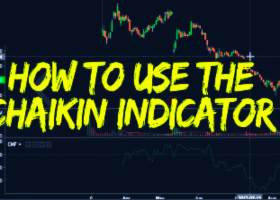
The Psychology of Forex Trading: How Emotions Affect Your Trades

The Psychology of Forex Trading: How Emotions Affect Your Trades
Forex trading is a complex and dynamic market where traders buy and sell currencies with the aim of making a profit.
It is a highly volatile market that can be influenced by a variety of factors, including economic news, political events, and market sentiment.
While technical analysis and fundamental analysis play a crucial role in making trading decisions, emotions also play a significant role in forex trading.
Emotions can have a profound impact on trading decisions. Fear and greed are two of the most powerful emotions that can influence a trader's decision-making process.
Fear can cause traders to hesitate or make irrational decisions, while greed can lead to impulsive and risky trades.
Understanding and managing these emotions is essential for successful forex trading.
Understanding the Role of Emotions in Forex Trading
Emotions can impact trading decisions in several ways. Firstly, emotions can cloud a trader's judgment and lead to irrational decision-making.
When traders are driven by fear or greed, they may ignore their trading plan and make impulsive trades based on their emotions.
This can lead to losses and poor trading performance.
Secondly, emotions can cause traders to overreact to market movements.
When traders experience fear or panic, they may be tempted to close their positions prematurely or take profits too early.
On the other hand, when traders are driven by greed, they may hold onto losing positions for too long, hoping that the market will turn in their favor.
These emotional reactions can result in missed opportunities and reduced profitability.
Psychological factors also play a significant role in trading behavior. Traders may have certain biases or beliefs that influence their decision-making process.
For example, confirmation bias is a common psychological bias where traders seek out information that confirms their existing beliefs and ignore information that contradicts them.
This can lead to biased decision-making and poor trading performance.
The Impact of Fear and Greed on Forex Trading
Fear and greed are two powerful emotions that can have a significant impact on forex trading.
Fear can cause traders to hesitate or avoid taking trades altogether.
This fear of losing money can prevent traders from capitalizing on profitable opportunities and can lead to missed trades.
Greed, on the other hand, can lead to impulsive and risky trading decisions.
When traders are driven by greed, they may take on excessive risk or enter trades without proper analysis.
This can result in significant losses and can undermine a trader's long-term profitability.
Managing fear and greed is crucial for successful forex trading.
One strategy for managing fear is to have a well-defined trading plan and stick to it.
By having a plan in place, traders can reduce the impact of fear on their decision-making process.
It is also important to set realistic expectations and not let fear dictate trading decisions.
To manage greed, traders should focus on risk management and discipline.
Setting proper stop-loss orders and taking profits at predetermined levels can help prevent impulsive and risky trades.
It is also important to avoid chasing profits and to stick to the trading plan.
How Overconfidence Can Lead to Trading Mistakes
Overconfidence is another psychological factor that can lead to trading mistakes.
When traders are overconfident, they may take on excessive risk or ignore warning signs in the market.
This can result in significant losses and can undermine a trader's long-term profitability.
Overconfidence can lead traders to believe that they have an edge in the market and that they are immune to losses.
This can cause them to take on larger positions or enter trades without proper analysis.
Overconfidence can also lead traders to ignore risk management principles and take on excessive leverage.
To avoid overconfidence, traders should focus on maintaining a realistic view of their abilities and the market.
It is important to constantly evaluate and reassess trading strategies and to be open to feedback and criticism. Traders should also focus on risk management and discipline, rather than trying to chase profits.
The Importance of Emotional Control in Forex Trading
Emotional control is crucial for successful forex trading.
When traders are able to control their emotions, they can make rational and objective trading decisions.
Emotional control allows traders to stick to their trading plan and avoid impulsive and irrational trades.
Emotional control also helps traders to stay focused and disciplined. It allows them to avoid being swayed by market noise or short-term fluctuations.
By staying focused on their long-term goals and objectives, traders can make better trading decisions and improve their overall profitability.
Developing emotional control takes time and practice.
Traders can start by being aware of their emotions and how they impact their decision-making process.
They can then work on developing strategies to manage and control these emotions. This can include techniques such as deep breathing, visualization, and meditation.
Strategies for Managing Emotions in Forex Trading
There are several strategies that traders can use to manage their emotions in forex trading.
One effective strategy is to practice mindfulness. Mindfulness involves being fully present in the moment and observing one's thoughts and emotions without judgment.
By practicing mindfulness, traders can become more aware of their emotions and how they impact their decision-making process.
This awareness allows them to make more rational and objective trading decisions.
Mindfulness can also help traders to stay focused and avoid being swayed by short-term fluctuations in the market.
Another strategy for managing emotions is to develop a routine or ritual before trading.
This can help traders to get into the right mindset and prepare themselves mentally for the challenges of trading.
This routine can include activities such as reviewing the trading plan, setting goals for the day, and visualizing successful trades.
The Role of Mindfulness in Forex Trading
Mindfulness plays a crucial role in forex trading. By practicing mindfulness, traders can stay focused and avoid being swayed by emotional reactions.
Mindfulness allows traders to observe their thoughts and emotions without judgment, which can help them make more rational and objective trading decisions.
One strategy for incorporating mindfulness into trading practices is to take regular breaks during the trading day.
These breaks can be used to practice mindfulness techniques such as deep breathing or meditation.
By taking a few minutes to relax and clear the mind, traders can reduce stress and improve their overall trading performance.
Another strategy is to incorporate mindfulness into the trading routine.
This can involve setting aside a few minutes before each trading session to practice mindfulness techniques.
By doing this, traders can prepare themselves mentally for the challenges of trading and improve their focus and concentration.
The Connection Between Trading Psychology and Performance
Trading psychology plays a crucial role in trading performance.
A trader's mindset and beliefs can have a significant impact on their decision-making process and overall profitability.
Developing a positive trading mindset is essential for success in forex trading.
A positive trading mindset involves having confidence in one's abilities and being able to stay focused and disciplined.
It also involves having a realistic view of the market and being able to adapt to changing market conditions.
Traders with a positive mindset are more likely to make rational and objective trading decisions and are less likely to be swayed by emotions.
Developing a positive trading mindset takes time and practice. Traders can start by focusing on their strengths and building confidence in their abilities.
They can also work on developing a growth mindset, which involves seeing failures and setbacks as opportunities for learning and improvement.
Common Psychological Biases in Forex Trading
There are several common psychological biases that can impact trading decisions in forex trading.
One common bias is confirmation bias, where traders seek out information that confirms their existing beliefs and ignore information that contradicts them.
This can lead to biased decision-making and poor trading performance.
Another common bias is the sunk cost fallacy, where traders hold onto losing positions for too long because they don't want to admit that they made a mistake.
This can result in significant losses and can undermine a trader's long-term profitability.
Other common biases include overconfidence bias, where traders overestimate their abilities and take on excessive risk, and recency bias, where traders give more weight to recent events and ignore historical data.
These biases can lead to poor trading decisions and reduced profitability.
Mastering Your Emotions for Successful Forex Trading
SYSTEMS TRADING LIKE BELOW WILL REMOVE EMOTIONAL MISTAKES
Multi Time Frame Multi Currency Signals Dashboard
https://www.mql5.com/en/market/product/47755
https://www.mql5.com/en/market/product/47989
https://www.mql5.com/en/market/product/50592
Trendlines Chart Patterns Indicator
https://www.mql5.com/en/market/product/47773
Mastering emotions is essential for successful forex trading. Emotions such as fear, greed, and overconfidence can have a significant impact on trading decisions and overall profitability.
By understanding and managing these emotions, traders can make more rational and objective trading decisions and improve their trading performance.
Developing emotional control and mindfulness are key strategies for managing emotions in forex trading.
Traders can practice techniques such as deep breathing, visualization, and meditation to help manage their emotions.
They can also incorporate mindfulness into their trading routine to improve focus and concentration.
Mastering emotions is a lifelong journey for forex traders. It requires self-awareness, discipline, and practice.
By focusing on developing emotional control and mindfulness, traders can improve their decision-making process and increase their chances of success in the forex market.


